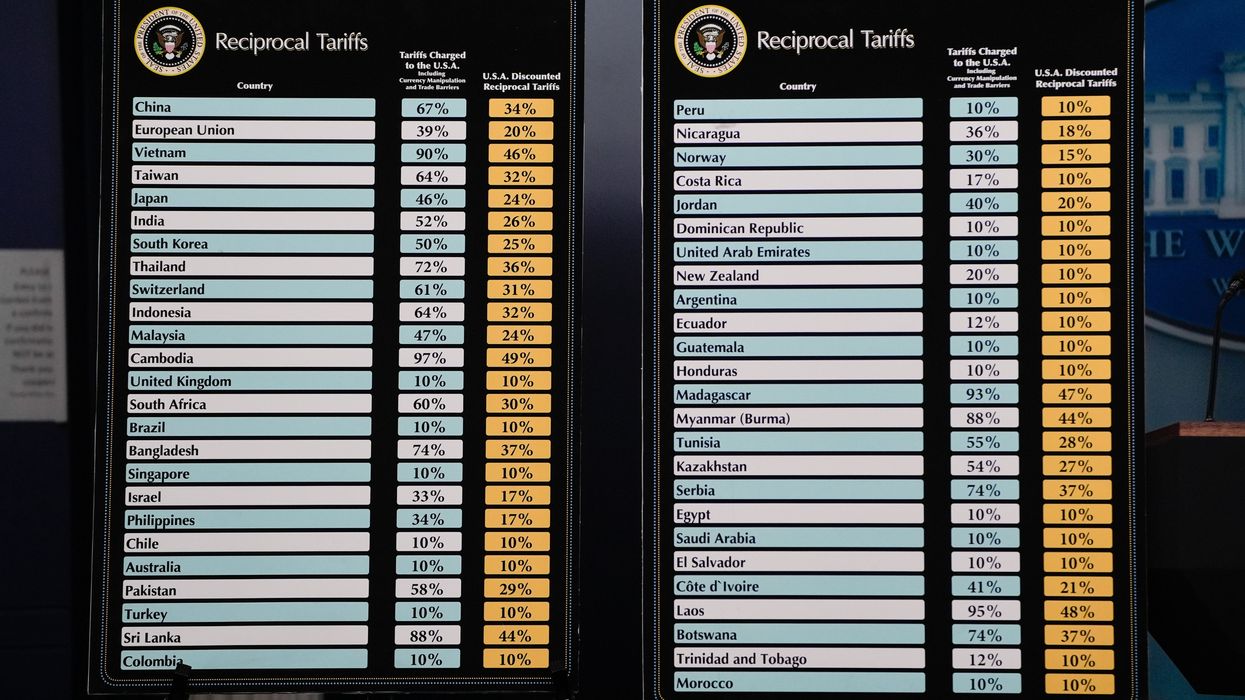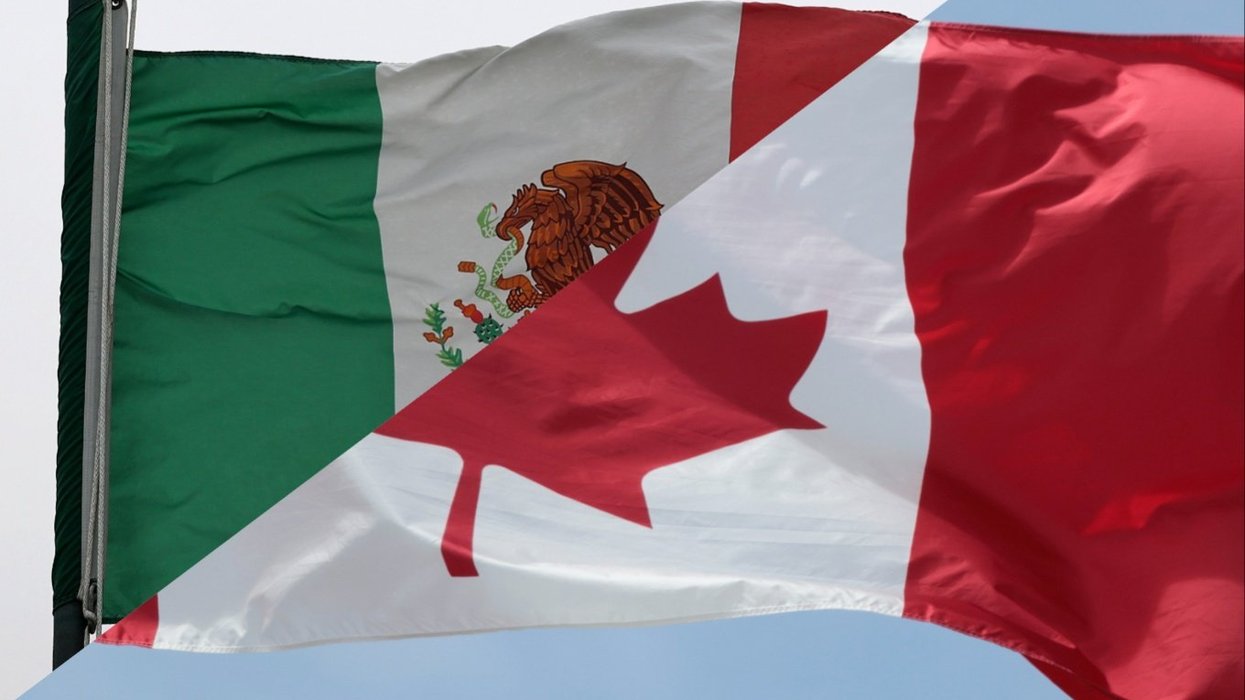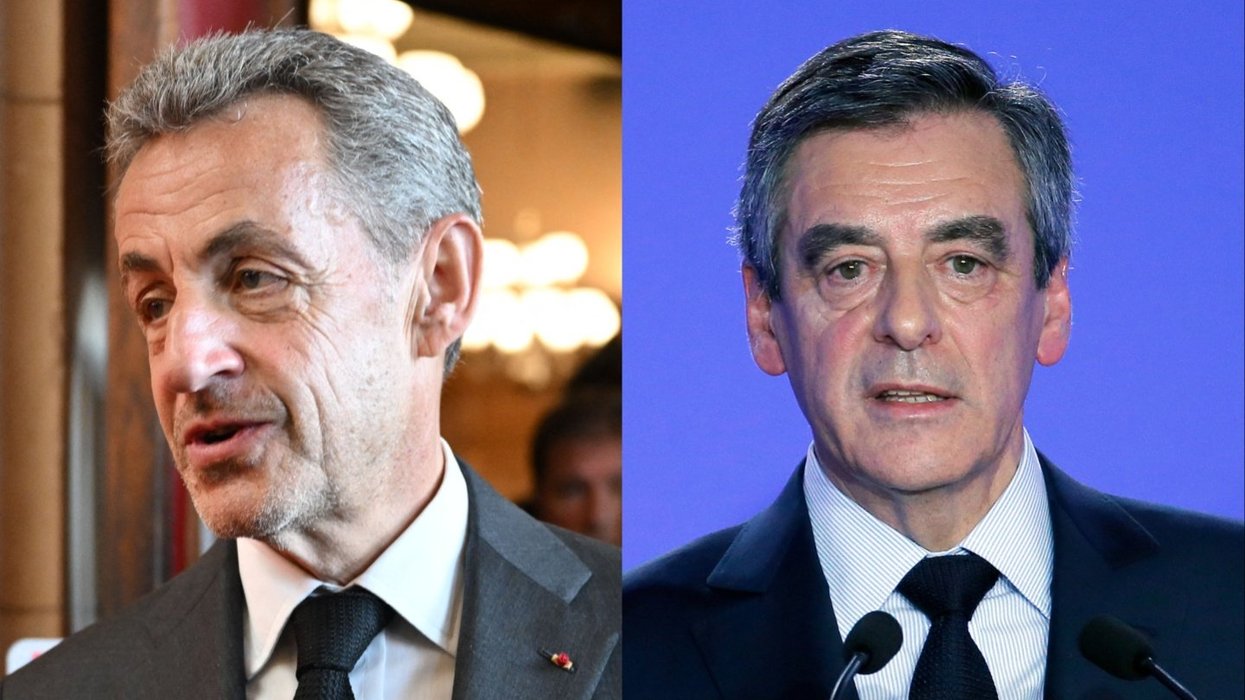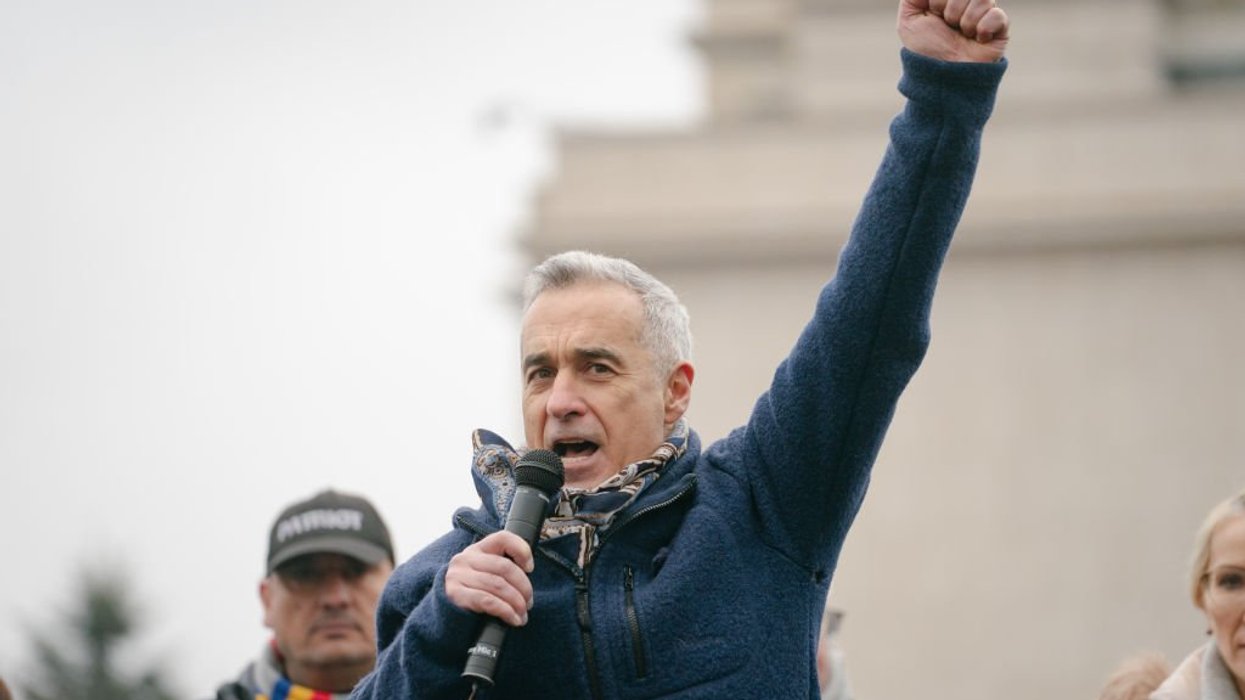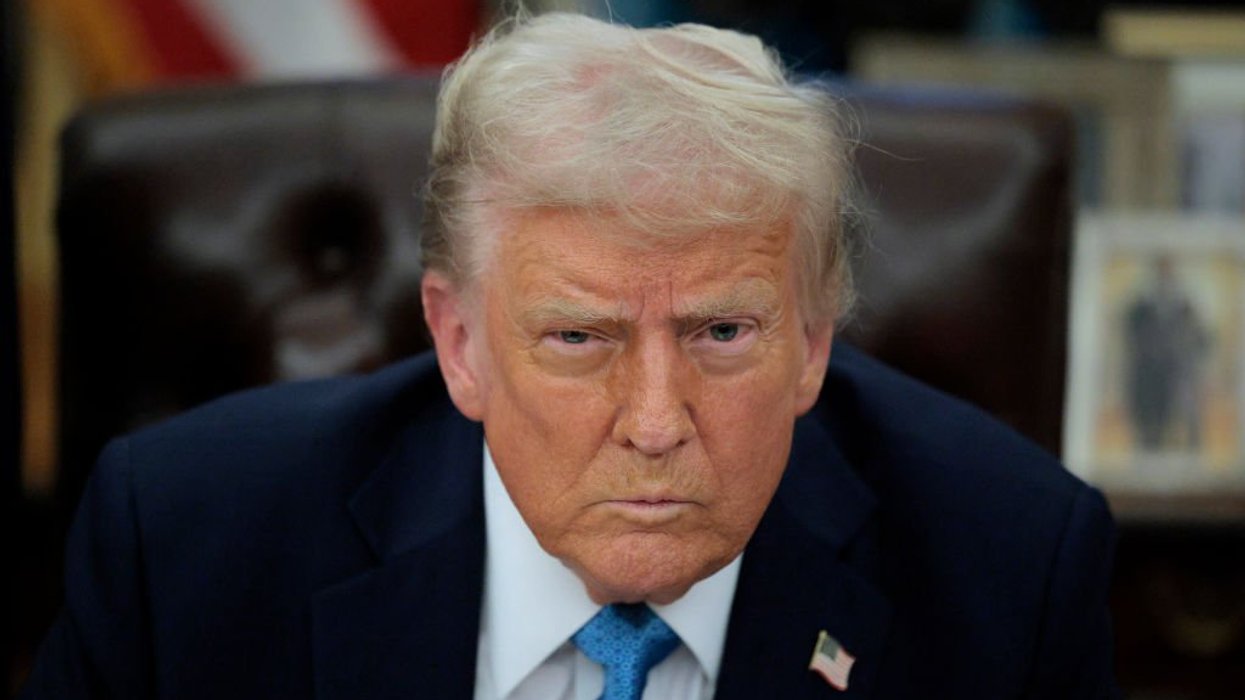Joining Glenn on his radio program Monday morning, presidential hopeful Rand Paul shared his thoughts on liberty and conservatism.
After introducing his new book, Our Presidents and Their Prayers, Paul pointed out what it means to him to be a Libertarian.
"Because I believe that you should have the liberty to do anything you want, doesn't mean I believe that you should do anything that you want," Paul said.
Later, he talked about why being conservative is not enough.
"You have to be a conservative and a Libertarian, or someone who believes in liberty also," Paul said. "I think it is that spice of life that spices it up and says to young people, 'We want you you to be free.' We don't want you to be bound by the state."
During the interview, Glenn challenged Paul on "turning his guns" on Ted Cruz.
"I think that's probably a misinterpretation," Paul said. "We're not out there campaigning against him."
Listen to the full interview or read the dialogue below.
Programming Alert:
Glenn sits down for one on one interviews with presidential candidates and gets answers to the questions the mainstream media won't ask.
Don't miss Glenn's sit-down interview with Rand Paul, airing on TheBlaze TV on Wednesday, October 28th at 5:00pm Eastern Time.
Sign up for TheBlaze TV today and get a free Roku streaming stick.
Below is a rush transcript of this segment, it might contain errors.
GLENN: Senator Rand Paul. And presidential hopeful is joining us now. How are you doing, Rand?
RAND: Thanks for having me, Glenn.
GLENN: You bet. I want to start off with the new book. And I'm a little hacked off. I didn't get a copy of the book. It's all up in New York. Just the title of it. Our Presidents and Their Prayers is fascinating to me. Tell me about the book.
RAND: Well, so often people want to say, "Well, we have separation of church and state." Well, we do. But the main separation was to keep the government out of the church, and not vice-versa. And we went back and looked at all the prayers and proclamations. And every president, bar none, has had prayers and proclamations indicating that faith influenced their decision-making. And then I kind of weave in through that some of the story of my faith, which I tell people hasn't always been linear. It's been sort of a zigzag.
GLENN: Mine too. A few cliffs on mine.
(laughter)
RAND: But always been profound, and something that I really sometimes really struggled over, but something that is very important to me and that I don't run away from and I'm not embarrassed to say that my faith and belief in right and wrong and morality and looking at every government policy that way is important.
GLENN: This is -- to me, I would think that this is surprising to a lot of people that you would be the one that would take on faith because Libertarians, I think, mistakenly are thought of as people that don't believe in faith.
RAND: What I think the funny thing is, is because I believe that you should have the liberty to do anything you want, doesn't mean I believe that you should do anything that you want.
GLENN: Right.
RAND: And, in fact, I'm a big fan of Os Guinness. You know Os Guinness?
GLENN: No.
RAND: He wrote a book called The Suicide of the Free People. And in it, I think he has a profound statement. He says that liberty requires restraint, but the only restraint consistent with liberty is self-restraint. So liberty and virtue are important.
Don Devine has another book where he talks about this, that they kind of need each other. That if you liberty without any kind of sense of self-restraint, without any sense of belief in something greater, without any sense of conscience and right and wrong, that if you have a society without any of that, liberty could be a disaster.
GLENN: This goes to almost what Thomas Paine was told by Benjamin Franklin. You know, basically, "How dare you. It's cool that you don't believe in God. But you're being produced by a society that did believe no God and those standards are what produced a stable enough society to be able to get you to this place." So I don't understand the hostility sometimes that we --
RAND: Really it's a combination. Don Devine in his book, called America's Way Back, talks about one of the great things of our Founding was the synchronism of freedom and tradition, of bringing both together.
GLENN: Yes.
RAND: And Don Devine says that freedom needs tradition for law and order and for inspiration. But tradition needs liberty or tradition needs freedom to escape stagnation.
GLENN: Yes.
RAND: And really, they do need both. And being -- that's why being conservative is not enough. You have to be a conservative and a Libertarian, or someone who believes in liberty also. Because I think it is that spice of life that spices it up and says to young people, "We want you you to be free." We don't want you to be bound by the state.
GLENN: Last week, we heard that they were going to do -- the House is going to go with Paul Ryan. And I flipped my wig just a little bit. Maybe a lot. Because I think the G.O.P. is hanging themselves. I mean, you put another guy in who is going to do absolutely nothing and play the same game and block the liberty people, you're going to lose the presidential election. To me, this is why people like Donald Trump are, at least at this point, up at the top, because people are sick of the game. They're absolutely sick of the game.
What do you think should happen in the House?
RAND: Well, you know, I've traveled the country, and what I hear from Republicans is the same thing: Very unhappy. Republicans control the House, Republicans control the Senate, and they're doing nothing.
We have not exerted the power of the purse. So I've been saying over and over again, "Yes, we need to exert the power of the purse." So my question is, "Will the next Speaker exert the power of the purse?" He's going to have a chance. We have a debt ceiling. What are they going to do? Is the new Speaker just going to raise the debt ceiling without demanding any reforms?
In 2011, we played this gambit, and the president said, "Oh, I won't negotiate with a gun to my head," but then it turned out the president did negotiate. We got something called the sequester, which was an across-the-line slowing down of the rate of growth of government. It wasn't even a cut. At the time I didn't think it was enough.
But you know who abandoned it? Paul Ryan. Paul Ryan and Patty Murray got together about a year, a year and a half ago, and the people on the right said, we got to have more money for the military. And the people on the left said, we got to have more money for welfare. So what did they do? They got together, and they did the secret handshake and we got more money for both. But that means that Paul Ryan was instrumental in getting rid of the sequester.
So my question now, "Do we really believe that he's going to use the debt ceiling to get reforms, or that he's not going to bust the budget caps?" I think they're going to bust the budget caps for military and welfare in December.
GLENN: When we look at people like Bernie Sanders -- I watched the debate with the Democrats. And I listen to Bernie Sanders, and I think, "I got a lot in common with Bernie Sanders." None of it on policy. None of it on policy. His solutions are hairbrained.
RAND: Sounds like Donald Trump to me. Has the correct anger and angry at Washington, but the policy may not exactly be there.
GLENN: Not really. I don't even think Donald Trump is this accurate. Bernie Sanders is talking about the way capitalism is being done is immoral. And he can make a good case for it. The way the crony capitalists are in with the people in Washington, the way Washington is being run is immoral.
RAND: Yeah, the problem though is Bernie complains about crony capitalism, and he kind of gets it right. But he equates it with all of capitalism, and he actually promotes something called Democratic socialism.
GLENN: Yes. Yes.
RAND: And I've been trying to point out -- because I'm on a lot of college campuses. We have a big following in college campuses -- that there's nothing sexy, and there's nothing cool about socialism. What there is, is the implied force that goes along with taking away your choice.
They tell you, you cannot make reindeer. You cannot make cars. You cannot sell water. Only the state tells you what you can do. It's the most anti-choice economic system. If you don't listen, they fine you. If you don't pay the fine, they imprison you. If you will not listen, ultimately, what has happened in history -- and people get mad when I say this -- but they exterminate you. And that's what happened under Stalin.
People say, "Oh, no, no, he wants Democratic socialism." The problem is, a majority can be just as bad as one single authoritarian. And that's why we shouldn't allow any of our rights to be subject to a majority. Our Founding Fathers understood that. They understood that your rights come from your Creator, and no majority should be able to take them away from you.
GLENN: Let me ask you a tough question. I'm frustrated. And this is something we've talked about before. I'm frustrated with any of the -- any of the guys, you Santorum, Cruz, trying to think who else --
PAT: Jindal.
GLENN: Anybody that would take -- you guys have targets like crazy. Donald Trump. Take -- you can -- Jeb Bush, take them.
Why have you decided to turn your guns on Ted Cruz at this point, where I would love for everybody on our side just to get along. Turn the guns on the other guys and talk liberty together.
RAND: Yeah, I think that's probably a misinterpretation. I'm on a lot of programs. People like you ask my questions, and I tend to respond to them and answer the questions.
But we've had nothing where we're sort of promoting any kind of animosity with Ted Cruz. We answer questions. If you ask me, you know, do I disagree with his vote on criminal justice this week, where he voted against the criminal justice reform, I will tell you that. But we're not out there campaigning against him.
GLENN: Well, you're saying that he has no future in the US Senate. Isn't that kind of --
RAND: I was asked a question. That is my honest answer. And the reason is, is that, he has a different vision than I do. His vision is, there's plenty of people, if you just rouse them up on our side to win elections. My opinion is, you have to rouse up and energize the electorate, the grassroots that are on our side, but you also have to reach out and get new people. I do not believe we will win by just rattling our cages for the base. We should energize the base, and we should be true to our principles. But I've been taking our principles to the south side of Chicago, to Philadelphia, to Baltimore, to Ferguson.
GLENN: You've done more in that than anybody I've ever seen in my life.
RAND: But I think it's also how you win elections. I mean, that's how you win a general election, is you got to get people in the middle and on the other side, who have never seen or heard or met a real live Republican, to start thinking about voting Republican. And that's just a difference in, I guess, vision of how you win elections. Philosophically, we're fairly close. You know, our voting records are fairly similar.
GLENN: You are coming up to the CNBC debate. It's all going to be about the economy and business.
Conventional wisdom would say that a businessman like Donald Trump, I think, if the country goes into economic insecurity, where we have a disruption of the economy like we did in 2008, I think Donald Trump would rocket to the top because a lot of people see him as a businessman because they watch his TV show.
And they just think that he's the guy to get it done. Why should you be the guy, being a doctor and a senator, not necessarily a businessman, why should you be the guy that America listens to?
RAND: Because I think that government is inversely proportional to liberty. That the bigger your government is, the less liberty you have. And that I think a free people are also a prosperous people. The freer you are, the more prosperous we will be. The reason why I think, you know, it would be a mistake to sort of elect or nominate someone who believes in their all-powerful, all-knowing sort of narcissism is that --
GLENN: Are you calling Donald Trump a narcissist?
RAND: Yeah, I know that's a stretch. I know that's a stretch. But that might be an understatement, actually.
GLENN: I was going to say. Because that's pretty kind. We've called him worse.
RAND: Yeah, but I think the thing is that worries me about it, from a point of view of liberty, is that when someone says they're all-knowing and that they are so smart, they can figure things out, it sounds like they want you to give them more power. And the biggest problem I see in our country is that we've given too much power to the presidency. And that over 100 years, more and more power has gravitated in Republican administrations and Democrat administrations, until the presidency has become maybe 1,000 fold more powerful than Congress.
So I don't want an all-powerful president. I don't want a president who promises me he's so smart that he can take care of me if I just give up a little bit more liberty. So that does worry me. That concerns me a great deal. But I do think that we need to know -- you know, he has this little slogan. He wants to make America great again.
Well, you have to understand what made America great to begin with. And what made us great to begin with is that we allowed people to be free to trade with each other, and we allowed them the freedom to interact and the freedom to make choices in the marketplace. But we didn't use big government like through eminent domain to come in and take the property of a small property owner and give it to a casino magnate. That wasn't part of the liberty. It isn't part of the liberty that anybody I know in the liberty movement would accept.
GLENN: I don't know if you know this, but Zemeckis has come out, the director of Back to the Future II, and he says Biff Tanner (sic) in Back to the Future II was modeled after Donald Trump.
(laughter)
RAND: It doesn't surprise me.
GLENN: Yeah. Are you concerned that Canada just elected a celebrity playboy. What was the country that I just --
STU: Guatemala.
GLENN: Guatemala just elected a comedian. Are you concerned at all that governments all around the world have so discredited themselves that we're quickly sliding towards a Weimar Republic re-do?
RAND: I think that when you look at it, there is a great deal of anger towards government. In fact, that's why I ran for office. Because I was unhappy with government. I tell people, I was tired of throwing things at my TV. You know, because I was so unhappy with what they were saying and doing.
And, frankly, the Tea Party movement arose because people were unhappy with Republicans. I was unhappy with Republicans who voted to do the bank bailout. But I was also unhappy with the Republicans who created new entitlement programs and doubled the size of the debt when they were in charge. And I ran, frankly, because I thought Republicans needed a better voice. But the interesting thing is -- and this boggles my mind that Trump could attract anybody from the Tea Party because he was for all the things we opposed. He was for the bailout of the banks. He was for the bailout of the car companies.
GLENN: Are you surprised at the Tea Party? Because I'm just devastated by 20 percent of the Tea Party saying, "Yeah, he's my guy." What is that?
RAND: I don't think we're getting to polling that's very accurate yet.
GLENN: Okay.
RAND: I think we're getting to polling that is of leaners. Because most of the polls -- two-thirds of the people in the polls are saying, "Well, I'm undecided." Then they're saying, "Well, no, no, who are you for if you had to make a choice?" So really this is a poll that is of undecided. It's doing a disservice to the whole process to bank so much information and so much of a conclusion from it. In fact, I tell people, because a lot of people in the media weren't very good at math, is that because there's a number, they think it's math. Oh, someone has 21 percent. Oh, that's math. It must be certain. Well, there's no certainty at all to these things. And I predict you'll see a great deal of upheaval and switch by the time we get to an election.
GLENN: I think so too. Rand Paul, joining us Wednesday. We will talk about the economy and fiat currency and, hopefully, a little more about his book, Our Presidents and Their Prayers. That will be on Wednesday's television show, only on TheBlaze TV. Tonight, an hour with Ted Cruz that you don't want to miss.


